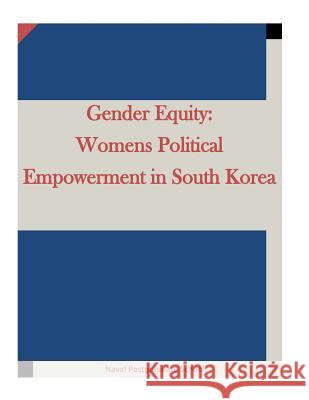Gender Equity: Womens Political Empowerment in South Korea » książka
Gender Equity: Womens Political Empowerment in South Korea
ISBN-13: 9781523200306 / Angielski / Miękka / 2016 / 64 str.
South Korea has undergone many drastic transformations from the time the state formally emerged in 1948 until now, becoming a thriving democracy and the world's 12th-largest economy. Women in South Korea have enjoyed many aspects of this recovery and rise. According to the 2013 World Economic Forum's Annual Gender Gap Index, South Korea's women today have the highest literacy and healthy life expectancy rates in the world. Yet according to the same index, South Korea placed 111th out of 136 countries in gender equality. While this index highlights the need for further improvement, the ranking does not illustrate the whole story of how far Korean women have progressed in their political empowerment. Conventional measurements describe Korean women's political empowerment status as unfavorable, but closer examination paints a different picture. Increasing economic status, higher education, and strengthening social capital have allowed Korean women to be more involved in civic life, and as a result, to make greater demands for equal representation in politics. All of these factors suggest a trend of continuous progress toward increased political empowerment.
Zawartość książki może nie spełniać oczekiwań – reklamacje nie obejmują treści, która mogła nie być redakcyjnie ani merytorycznie opracowana.











